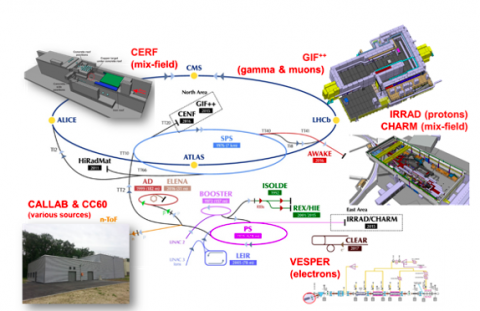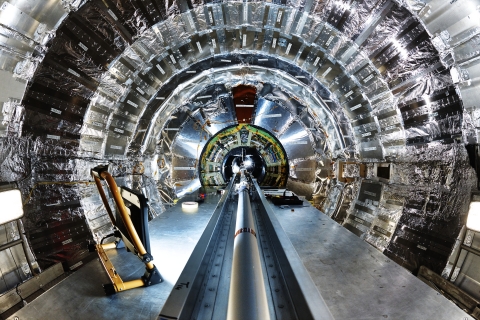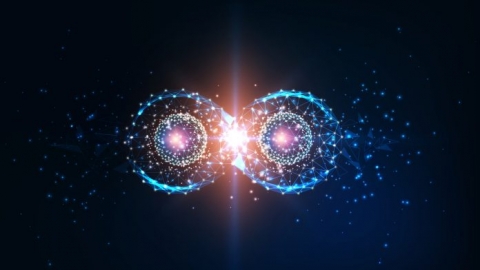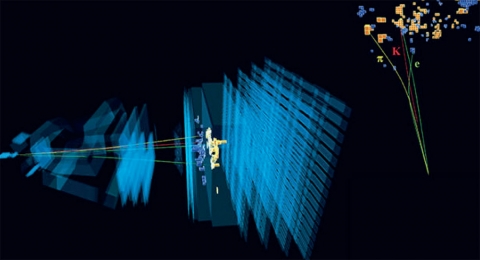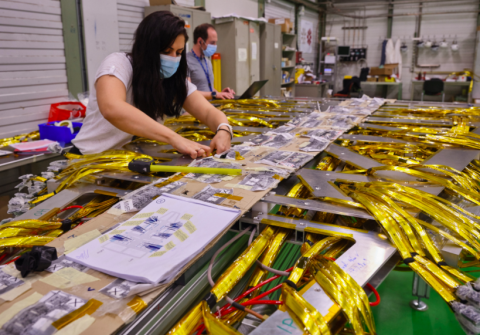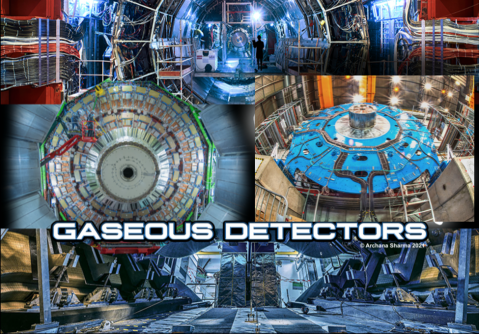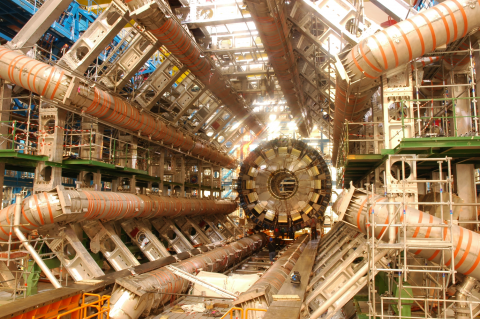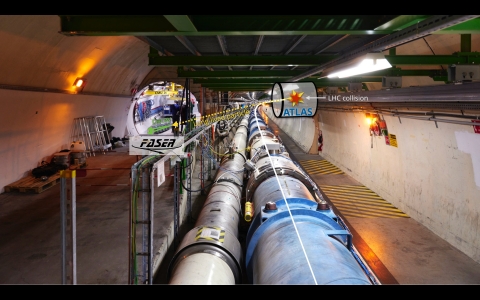June 2021 - August 2021
CERN's irradiation facilities eye to the future
CERN operates several unique in-house radiation-test facilities and makes use of a broad variety of external facilities to satisfy the needs of users from experiments and equipment groups in the Research and Computing (RCS) and Accelerators and…
Read moreThe installation of the beam pipe at the heart of the CMS experiment
After several years of complex design, manufacture and planning, the CMS collaboration, in tight cooperation with experts of the CERN Technology Department-Vacuum, Surfaces, and Coating group, have been installing the new heart of the detector, the…
Read moreA word from the EP Deputy Department Head - June 2021
Dear colleagues in EP, Welcome to the summer edition of the EP newsletter, which is packed with material related to the work in our department, that we hope you will find interesting. Despite the ongoing pandemic there has been…
Read moreHow different are electrons and muons after all? Discovering lepton flavour universality violating new physics
Introduction The discovery of the electron in 1897 by Thomson, Wiechert and Kaufmann might be considered the starting date of elementary particle physics, as still today the electron is considered to be a fundamental particle. From there on it took…
Read moreAnomalous measurements: recent LHCb results deepen flavour puzzle
The crown jewel of particle physics, the Standard Model (SM), has withstood numerous experimental trials. However, there are still some observations it cannot explain. Examples such as dark matter and the matter-antimatter imbalance in the Universe…
Read moreNew pathways in axion searches
Peering through telescopes we have found a deluge of evidence for dark matter. Given the speed that galaxies rotate, as well as theoretical calculations about the evolution of large-scale structure in the Universe, dark matter should make up 85% of…
Read moreSetting a roadmap for R&D on Detector Technologies
Research is a global game, yet to be successful requires coordination at regional, national and international level. The success of the LHC programme highlights the role of open-door policies and diverse bottom-up community initiatives in…
Read moreDesigning gas transport parameters for future HEP experiments
Fig. 1 Large experimental systems at LHC, comprising various gaseous detectors covering thousands of m2, providing tracking and triggering for muons. Given their large areas and cost effectiveness, particle physics experiments rely heavily on…
Read moreMighty magnets for particle detectors
The ATLAS Magnet Team, part of the EP-ADO-SO section, has the principal responsibility for the maintenance and operation of the ATLAS Superconducting Magnets. This effort is supported by a large number of colleagues, in particular from EP-DT, TE-CRG…
Read moreFASER Detector Installation
During March the FASER detector was successfully installed into the LHC complex. FASER, a new small LHC experiment, designed to search for light, weakly interacting new particles in the LHC collisions was proposed in 2017, and after review by the…
Read more
